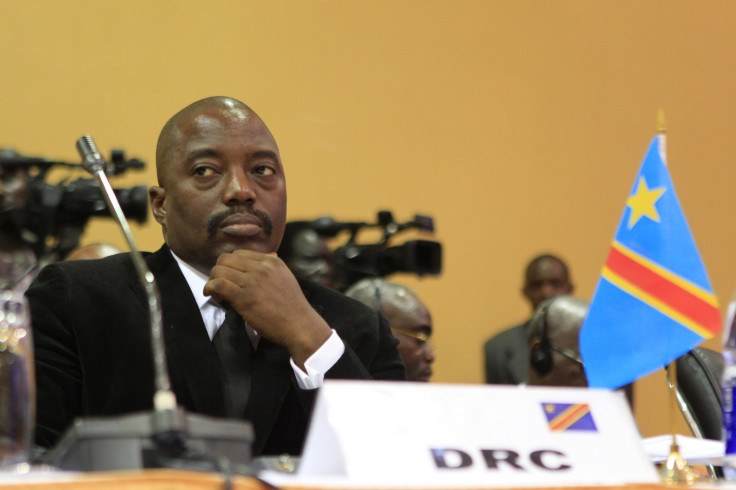DRC: President Joseph Kabila 'has not respected accord' with new government
Commentators claim Kabila has violated power-sharing deal with appointment of new government.

Commentators and politicians have condemned Congolese President Joseph Kabila for not respecting accords signed on 31 December last year after he announced a new government.
The opposition claims that Kabila – who was due to step down in December 2016 – seeks to stay in power beyond his constitutional limit. He blocked elections on the issue of costs and refused to relinquish power.
Kabila appointed new Prime Minister Bruno Tshibala, on 7 April, as stipulated by the power-sharing deal brokered by the Congolese Catholic Church (CENCO).
In a statement read on public television yesterday (9 May), Kabila announced a new government to be led by Tshibala with three vice-prime ministers, nine state ministers, 35 ministers and 11 vice-ministers.
Most ministers of the former administration have kept their previous portfolios – Léonard She Okitundu, Emmanuel Shadary and José Makila for example remain vice-prime ministers in charge of foreign affairs, the interior and transport, respectively.
New joiners include Tshibangu Kalala (NBP party), Lisanga Bonganga who is part of one of the two wings of the opposition coalition Rassemblement and Joseph Kapika from the main UDPS party.
However, the new government overall offers little change to the former. Given the fact that a part of the opposition is not represented in the new government – something that was stipulated in the power-sharing deal – commentators and politicians have rejected these appointments, saying the new government violates the spirit of the 31 December agreement.
'Kabila has not respected the 31 December accord'
For Michael Tshibangu, a lawyer and president of UK-based Alliance for Development and Democracy in Congo (ADDC), Kabila "has not respected the accord, and hasn't even respected the special arrangement (the logistics for the implementation of the 31 December 2016 accord) that they have signed."
This was echoed by Hubert Leclercq, journalist at La Libre, who wrote on Twitter: "The DRC government of Bruno Tshibala is making fun of the 31 December. (But) will it do better than Samy Badibanga (former Prime Minister)?"
Vava Tampa, a human rights campaigner and founder of Save the Congo, told IBTimes UK the new government's nomination confirmed two things. "Diplomatic efforts to sway Kabila not to cling to power is failing. And last but not least: Kabila does not care what the African Union (AU), European Union (EU) or United States (US) think and he'll do everything possible to cling to power."
But all is not lost, Tampa said, calling for sanctions to be imposed on the president and his inner circle. "Kabila is continuing to frustrate the process because the EU, AU and US are still protecting him. An example of this is none of the things or people he values most has been placed under sanction. His top disciples are still free to to shop and dine in Paris. The EU and US must now apply 'life-changing' sanctions against him and the things he values most – his family's wealth and their ability to move freely in Africa and across the globe."
John Aladina, strategic and political analyst, meanwhile, reminded that Tshibala's new government has at most "235 days to organise credible elections". Any suspension in the elections – scheduled for December 2017 – could spark violence, analysts warned.
© Copyright IBTimes 2025. All rights reserved.






















